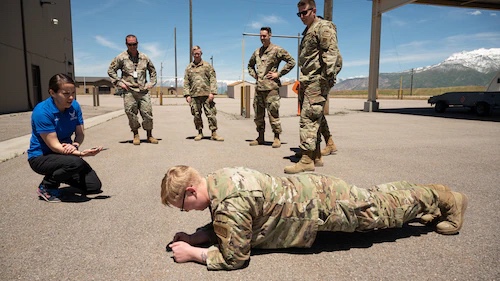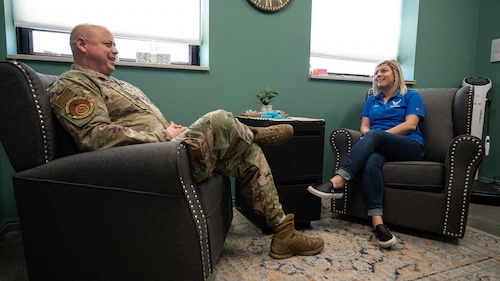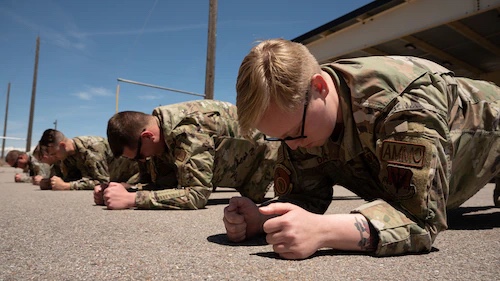HILL AIR FORCE BASE, Utah (AFNS) —
One of the first multidisciplinary medical operational support teams in the Air Force is working to reduce muscular-skeletal and mental health issues at Hill Air Force Base.
The five-person team, consisting of an exercise physiologist, clinical psychologist, clinical social worker, physical therapist and strength conditioning coach, embeds with high-risk units for up to six months to accomplish desired results.

“What we’re really trying to do is observe for the broader, longer-term things that are causing muscular-skeletal and mental health issues so we can help the unit make adjustments to prevent future injury or mental health crises,” said Bill Goins, Base Operations Support Team specialist”
Risk data, collected from the 75th Medical Group over the past year, identifies high-risk units on the installation.
“We take the data and approach the leadership of the top couple units on base and explain what we’re seeing and what we can do to help,” Goins said. “Units have been extremely receptive and excited to have us come in.”
Once in the unit, the OST uses a four-phased approach to determine how best to help reduce muscular-skeletal and mental health issues and to establish internal sustainment when they move to the next unit.

The team works side-by-side with unit members, in every section and on every shift to experience what Airmen experience on the job and to build trust with them.
“We’re out there trying to build trust and break down barriers so they will bring concerns to us,” Goins said. “We do a couple needs assessments, work in their sections with them and find out what they want and need. Then, we get to work helping Airmen”
During a recent embed opportunity with the 75th Security Forces Squadron, the OST observed a lack of shoulder mobility from people wearing their necessary gear.
The team’s physical therapist made suggestions on what squadron members could do before they arm-up with their gear and when they arm-down, to help reduce repetitive-use injuries.
Goins said the OST reduced profiles for lower back pain by 75% during their time with the 75th SFS.
“When we entered the unit, their muscular-skeletal profile risk and mental health profile risk was the 12th highest of 82 security forces units across the Air Force,” he said. “When we left, they were 75th of 82.”

An essential part of what the OST does is to help the squadron build and expand upon what they can do without the team around and establish contacts where the team can reach back for sustainment.
“We develop the squadron performance optimization response team,” Goins said. “These are people in the unit, so when we transition to our next location, these folks can continue the goodness after we leave.”
Goins said the OST concept is important for the Air Force right now because instead of waiting for people to break, it’s getting in front of it before the breakage happens.
“We are doing physical jobs and mentally-stressful jobs and people break,” he said. “That’s not unique to the Air Force, that’s just people. It excites me for Airmen to have access to these specialties and knowledge in prevention.”
Every Air Force base is expected to have the services of an OST in the next three to five years.
“Our goal is the make Airmen better for themselves, for their families and for the Air Force,” Goins said. “It’s an exciting thing, for sure.”
Story by Donovan Potter, 75th Air Base Wing Public Affairs
Photos by R. Nial Bradshaw

